
New Zealand lesbian, gay, bisexual, and transgender (LGBT) rights are some of the most extensive in the world. The protection of LGBT rights is advanced, relative to other countries in Oceania, and among the most liberal in the world, with the country being the first in the region to legalise same-sex marriage.

Lesbian, gay, bisexual, transgender and queer (LGBTQ) rights in Australia rank among the highest in the world; having significantly advanced over the latter half of the 20th century and early 21st century. Opinion polls and the Australian Marriage Law Postal Survey indicate widespread popular support for same-sex marriage within the nation. Australia in 2018, in fact was the last of the Five Eyes set of countries - that consisted of namely Canada (2005), New Zealand (2013), United Kingdom (2014) and the United States (2015) to legalize same-sex marriage. A 2013 Pew Research poll found that 79% of Australians agreed that homosexuality should be accepted by society, making it the fifth-most supportive country surveyed in the world. With its long history of LGBTQ activism and annual Gay and Lesbian Mardi Gras festival, Sydney has been named one of the most gay-friendly cities in the world.
Same-sex marriage has been legal in Australia since 9 December 2017. Legislation to allow it, the Marriage Amendment Act 2017, passed the Parliament of Australia on 7 December 2017 and received royal assent from Governor-General Peter Cosgrove the following day. The law came into effect on 9 December, immediately recognising overseas same-sex marriages. The first same-sex wedding under Australian law was held on 15 December 2017. The passage of the law followed a voluntary postal survey of all Australians, in which 61.6% of respondents supported legalisation of same-sex marriage.

Lesbian, gay, bisexual, and transgender (LGBT) rights in Queensland have advanced significantly from the late 20th century onwards, in line with progress on LGBT rights in Australia nationally. 2019 polling on gay rights consistently showed that even in regional areas, Queensland is no more conservative about the subject than any other states.

Lesbian, gay, bisexual, and transgender (LGBT) people in the Australian state of New South Wales have most of the same rights and responsibilities as non-LGBT people.
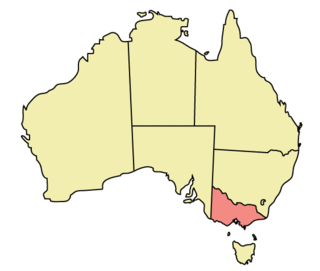
The Australian state of Victoria is regarded as one of the country's most progressive jurisdictions with respect to the rights of lesbian, gay, bisexual, and transgender (LGBTQ) people. Victoria is the only state in Australia, that has implemented a LGBTIQA+ Commissioner.
Same-sex marriage is legal in the Australian Capital Territory, and in the rest of Australia, after the Federal Parliament legalised same-sex marriage in December 2017.
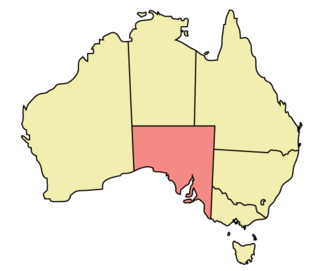
The rights of lesbian, gay, bisexual, and transgender (LGBT) people in the Australian state of South Australia are advanced and well-established. South Australia has had a chequered history with respect to the rights of LGBT people. Initially, the state was a national pioneer of LGBT rights in Australia, being the first in the country to decriminalise homosexuality and to introduce a non-discriminatory age of consent for all sexual activity. Subsequently, the state fell behind other Australian jurisdictions in areas including relationship recognition and parenting, with the most recent law reforms regarding the recognition of same-sex relationships, LGBT adoption and strengthened anti-discrimination laws passed in 2016 and went into effect in 2017.
Australia is one of the most LGBTQ-friendly countries in the world. In a 2013 Pew Research poll, 79% of Australians agreed that homosexuality should be accepted by society, making it the fifth most supportive country in the survey behind Spain (88%), Germany (87%), and Canada and the Czech Republic. With a long history of LGBTQ rights activism and an annual three-week-long Mardi Gras festival, Sydney is considered one of the most gay-friendly cities in the world.
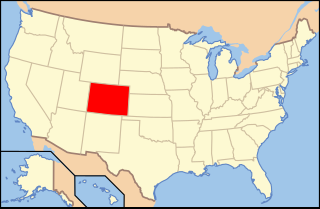
Lesbian, gay, bisexual, transgender, and queer (LGBTQ) people in the U.S. state of Colorado enjoy the same rights as non-LGBTQ people. Same-sex sexual activity has been legal in Colorado since 1972. Same-sex marriage has been recognized since October 2014, and the state enacted civil unions in 2013, which provide some of the rights and benefits of marriage. State law also prohibits discrimination on account of sexual orientation and gender identity in employment, housing and public accommodations and the use of conversion therapy on minors. In July 2020, Colorado became the 11th US state to abolish the gay panic defense.

This article details the history of the LGBTQ rights movement in Australia, from the colonial era to the present day.

The Marriage Equality Act 2013 was an act of parliament of the Australian Capital Territory Legislative Assembly that was intended to legalise same-sex marriage in the ACT. It was first presented to the ACT Legislative Assembly on 19 September 2013 by the ACT Attorney-General, Simon Corbell. The law intended to build on the existing recognition of same-sex unions in the Australian Capital Territory, which included recognition of de facto partners, civil partnerships and same-sex-only civil unions. The Act was passed in the Legislative Assembly on 22 October 2013. It came into operation on 7 November although wedding ceremonies under the provisions of the Act did not occur until 7 December 2013.

Lesbian, gay, bisexual, and transgender (LGBT) people in the Australian state of Tasmania have the same legal rights as non-LGBT people. Tasmania has a transformative history with respect to the rights of LGBT people. Initially dubbed "Bigots' Island" by international media due to intense social and political hostility to LGBT rights up until the late 1990s, the state has subsequently been recognised for LGBT law reforms that have been described by activists such as Rodney Croome as among the most extensive and noteworthy in the world. Tasmania's criminal penalties for homosexual activity were the harshest in the Western world when they were repealed in 1997. It was the last Australian jurisdiction to decriminalise homosexuality after a United Nations Human Rights Committee ruling, the passage of federal sexual privacy legislation and a High Court challenge to the state's anti-homosexuality laws. Following decriminalisation, social and political attitudes in the state rapidly shifted in favour of LGBT rights ahead of national trends with strong anti-LGBT discrimination laws passed in 1999, and the first state relationship registration scheme to include same-sex couples introduced in 2003. In 2019, Tasmania passed and implemented the world's most progressive gender-optional birth certificate laws. In July 2023, the Tasmanian government officially included and also added "asexual or asexuality".
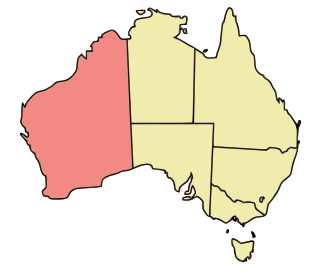
Lesbian, gay, bisexual and transgender (LGBTQ) rights in Western Australia have seen significant progress since the beginning of the 21st century, with male sex acts legal since 1990 and the state parliament passing comprehensive law reforms in 2002. The state decriminalised male homosexual acts in 1990 and was the first to grant full adoption rights to LGBT couples in 2002.
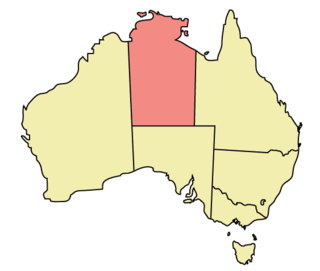
Lesbian, gay, bisexual, and transgender (LGBT) people in Australia's Northern Territory have the same legal rights as non-LGBT people. The liberalisation of the rights of lesbian, gay, bisexual and transgender (LGBTQ) people in Australia's Northern Territory has been a gradual process. Homosexual activity was legalised in 1983, with an equal age of consent since 2003. Same-sex couples are recognised as de facto relationships. There was no local civil union or domestic partnership registration scheme before the introduction of nationwide same-sex marriage in December 2017, following the passage of the Marriage Amendment Act 2017 by the Australian Parliament. The 2017 Australian Marriage Law Postal Survey, designed to gauge public support for same-sex marriage in Australia, returned a 60.6% "Yes" response in the territory. LGBT people are protected from discrimination by both territory and federal law, though the territory's hate crime law does not cover sexual orientation or gender identity. The territory was the last jurisdiction in Australia to legally allow same-sex couples to adopt children.
This is a list of notable events in the history of LGBT rights that took place in the year 2016.
Transgender rights in Australia have legal protection under federal and state/territory laws, but the requirements for gender recognition vary depending on the jurisdiction. For example, birth certificates, recognised details certificates, and driver licences are regulated by the states and territories, while Medicare and passports are matters for the Commonwealth.

The Marriage Amendment (Definition and Religious Freedoms) Act 2017(Cth) is an Act of the Parliament of Australia, which legalises same-sex marriage in Australia by amending the Marriage Act 1961 to allow marriage between two persons of marriageable age, regardless of their gender.
This is a list of notable events in LGBT rights that took place in the 2010s.
This is a list of notable events in the history of LGBT rights that took place in the year 2020.













